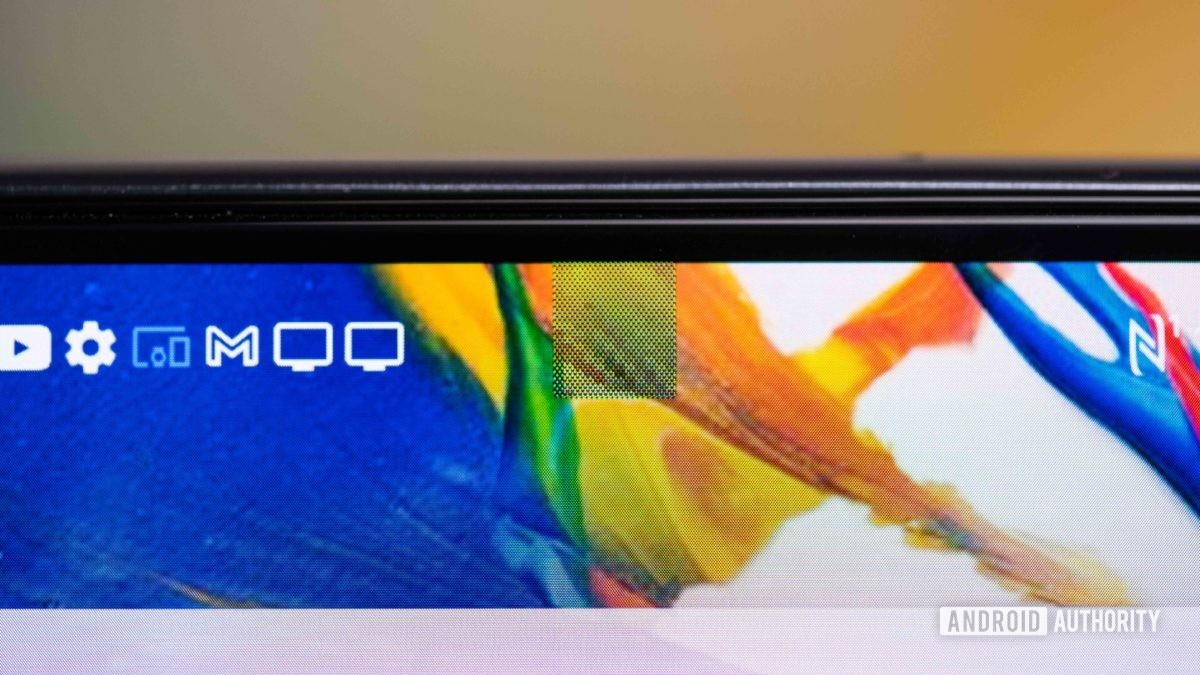Almost exactly a year ago, we attended Oppo Innovation Day 2019 in Shenzhen. At the event, Oppo showed off the first under-display smartphone camera concept. While there were multiple other technologies highlighted at the event, the hidden selfie camera was clearly the star of the show, as it begins the final chapter of creating a truly bezel-less smartphone.
Well, Oppo still hasn’t released a smartphone with the technology. But as goes the course of capitalism, if you don’t make something, someone else will. And this time, that someone is ZTE.
The Axon 20 5G is a new offering from ZTE, and in most aspects, it’s sporting standard fare. There’s a big 6.92-inch OLED display with a 90Hz refresh rate, a Qualcomm Snapdragon 765G with 5G capabilities, a 4,220mAh battery with 30W charging, and a versatile quad-camera setup.
| ZTE Axon 20 5G | |
|---|---|
| Display | 6.92-inch OLED 2,460 x 1,080 resolution 20.5:9 aspect ratio 90Hz, 240Hz sampling rate |
| Processor | Qualcomm Snapdragon 765G |
| GPU | Adreno 620 |
| RAM | 6GB / 8GB |
| Storage | 128GB / 256GB |
| Cameras | Rear Main: 64MP Wide: 8MP ultra-wide (120-degree FoV) Macro: 2MP Depth: 2MP Front: 32MP under-display camera |
| Headphone jack | No |
| Battery | 4,220mAh 30W charging |
| IP rating | No |
| Software | Android 10 MiFavor UI 10.5 |
| Dimensions and weight | 172.1 x 77.9 x 7.98mm 198g |
| Colors | Purple Orange Blue Black |
In most respects, this is your standard upper-mid range smartphone. But look a little closer, and you’ll find something special near the top of the display.
The ZTE Axon 20 5G sports a 32MP under-display selfie camera. By using a combination of organic and inorganic film for a small part of the display, ZTE is able to allow light to pass through into the camera underneath. The portion of the display hiding the camera uses a lower resolution with smaller pixels than the rest of the display, and turns off those pixels to allow light to enter the camera hidden underneath. Because the pixel density is lower in this portion with gaps in between, light can pass through both the gaps in the film and translucent pixels to get to the camera.
The result is a small square at the top of the display which looks like a darker spot when the screen is off, and a pixelated grid when the screen is on. Like other manufacturers, ZTE tries to hide this area by using default wallpapers that are dark near the top. In practice, this works very well. When viewing the phone with darker colors near the top of the screen, you probably won’t notice the camera at all. if you’re using a white background, it’s a bit more obvious. That said, any color but white hides the grid fairly effectively, and you’ll need to look at specific angles to really notice this portion of the display.
The images above make the camera grid look worse than it does in real life, since taking images of the grid tends to add moire. At most angles, it’s actually quite difficult to see the grid at all unless you’re looking for it. Tilt the phone to certain angles though, and it becomes a bit easier to notice.
Does it affect selfie images?
The short answer is yes. Selfies from the ZTE Axon 20 5G look as if they have a beauty filter on all the time, adding a glow reminiscent of Vaseline on the lens of a 60s movie. It’s a bit like your lens always has a smudge on it that you can’t clean off.
If you’re someone that needs to be able to take high-quality selfie photos or videos, you might want to look elsewhere. While images certainly don’t look terrible, it’s pretty much impossible to get rid of the glow cast on the final image coming from this camera. That said, many manufacturers will add a beauty filter by default as it is, and if you’re someone who likes this in most circumstances, it’s effectively the same thing.
Looking forward
While the under-display selfie camera in ZTE’s Axon 20 5G isn’t perfect, it’s only the first commercially available smartphone with the technology. First-generation products generally suffer from hiccups, with further generations perfecting the tech. As more companies start adopting the technology, we’re sure to see an even more convincing implementation in the future.
Under-display selfie cameras can help smartphones have more usable display area, but theoretically, the camera could be placed in the center of the phone for better video calls. Current video calls force users to look away from the camera in order to see the other person, but placing the selfie camera in the center of a smartphone would allow for better eye contact on video calls without software solutions. This is just one benefit of the tech, with more sure to come in the future.
The ZTE Axon 20 5G is available today (December 21) for $449. Users who purchase a unit before December 27, 2020 will receive a free pair of ZTE LiveBuds truly wireless earbuds, alongside access to ZTE’s Vision Club, where they can contribute ideas about upcoming ZTE devices.
ZTE Axon 20 5G The first consumer-ready under-display smartphone.
ZTE's Axon 20 5G is an upper mid-ranged smartphone in most aspects, but the under-display selfie camera sets it apart from anything else available today.
https://ift.tt/2WzJCu0
Technology
Bagikan Berita Ini




















0 Response to "ZTE's under-display selfie smartphone is here. Here's how it works. - Android Authority"
Post a Comment